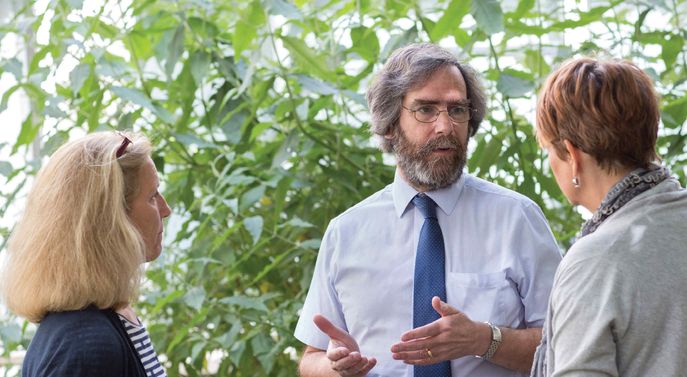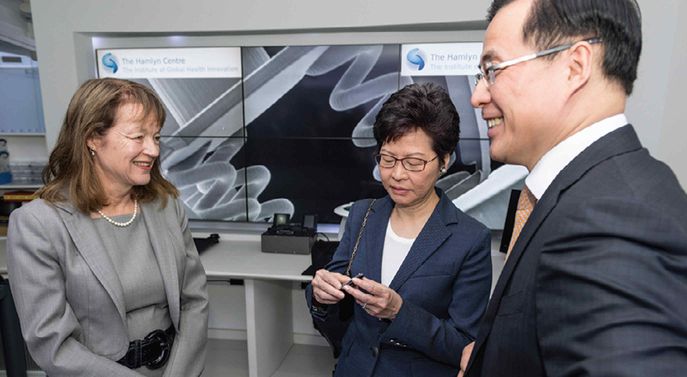Inventive output and commercial deals
Invention disclosures, patent applications and commercialisation of IP all contribute to a university’s inventive and economic output. Managed by Imperial Innovations, invention disclosures at Imperial have increased by 13% this year (see Distribution of invention discloures by academic department), with an increase in the number of patent applications filed, building on the steady growth witnessed over the last six years. The year’s commercial deals were largely dominated by two significant projects in the engineering and medical sectors.
Commercialisation Blocks - Row 1

Groundbreaking gene therapy for cystic fibrosis
The development of a new lentiviral vector to deliver gene therapy for patients with cystic fibrosis received a significant boost when Imperial Innovations entered an option and licence agreement with Boehringer Ingelheim. The agreement was part of a three-way collaboration between the pharmaceutical company, Oxford BioMedica and the UK Cystic Fibrosis Gene Therapy Consortium, formed by Imperial and the Universities of Edinburgh and Oxford. The collaboration builds on the Consortium’s IP portfolio, takes advantage of the vector’s unique ability to produce high protein levels over long periods, and prepares the route to clinic by establishing robust manufacturing and toxicology programmes.
Photo shows the Imperial leads for the UK Cystic Fibrosis Gene Therapy Consortium. From left: Professors Uta Griesenbach, Eric Alton and Jane Davies.

More precise robotic surgery
Precision Robotics is working with a range of patented robotic technologies to help surgeons and improve outcomes for patients. It represents a unique partnership between groups in the UK and China, funded by a syndicate of first tier Chinese and Hong-Kong-based investors with sector expertise and commercial and industry resources. Imperial Innovations supported the company from IP protection through to company launch. The Precision Robotics medical robot platform will initially be used for patients requiring colorectal cancer surgery.
Precision Robotics is based on research at Imperial’s Hamlyn Centre for Robotic Surgery led by Professor Guang-Zhong Yang, who discussed some of his technologies with Hong Kong’s Chief Executive Carrie Lam (centre) and Imperial’s President Alice Gast (left) in December 2017.